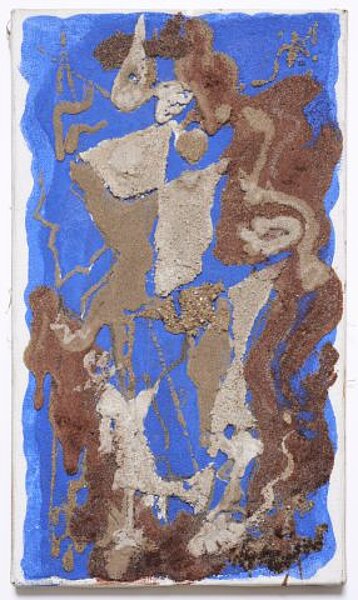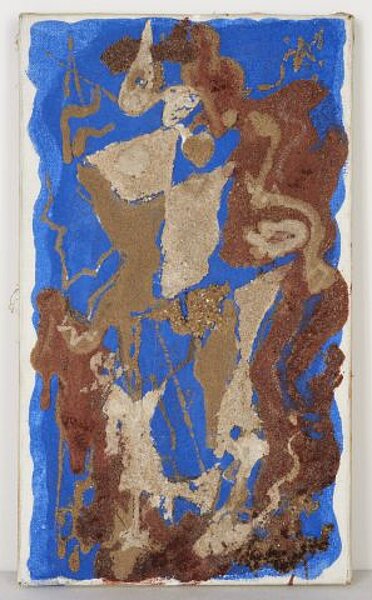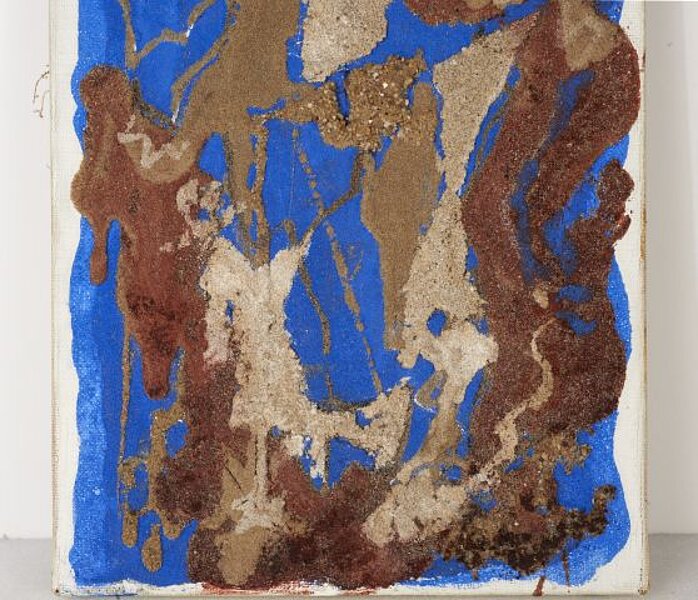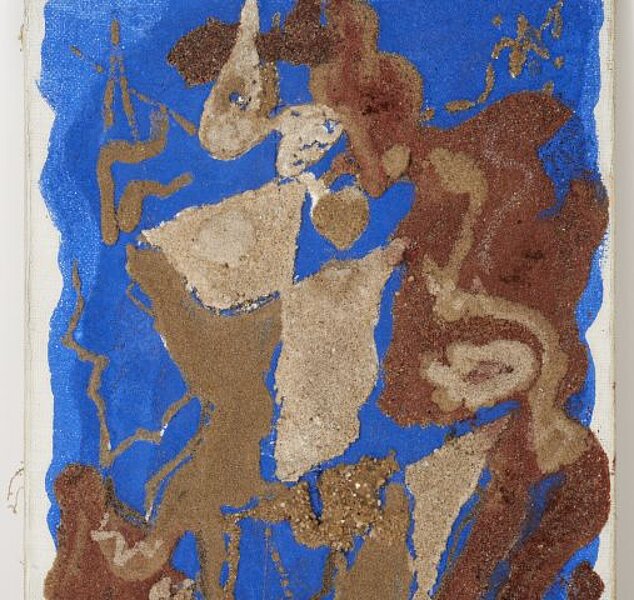
Masson, André
Oiseaux
Birds
1927
| Object description | Tempera, sand, glue on canvas |
|---|---|
| Object category | image |
| Material |
Support:
canvas
|
| Technique | |
| Dimensions |
frame dimension:
height: 55,2 cm,
width: 41,7 cm,
depth: 6,6 cm
object size:
height: 33 cm,
width: 19 cm,
depth: 2 cm
|
| Year of acquisition | 1966 |
| Inventory number | B 125/0 |
| Creditline | mumok - Museum moderner Kunst Stiftung Ludwig Wien |
| Rights reference | Bildrecht, Wien |
| Further information about the person | Masson, André [GND] |
| Literature |
ALBERTO GIACOMETTI.Pionier der Moderne/Modernist Pioneer Peter Weibel : Theorie und Medien |
The unconventional surrealist André Masson discovered at the French coast in 1927 the possibility of incorporating sand as a material foreign to art into his paintings. „ I felt the necessity of the sand paintings. I became are of the gap between my drawings and my oil paintings, the gap between the spontaneity of the flash like tempo of the former and the ill-fated reflection in the latter. Masson alludes to the central method of surrealism: automatic writing and drawing. What the subconscious dictates is written down automatically without the benefit of control and reason. With his sand-paintings, Masson realizes a semiautomatic created process which becomes comprehensible with the help of this painting titled “The Birds”. With impulsive gestures he instinctively applies glue, equally allowing for traces of drip and thicker patches. He then sprinkles both coarse and fine sand on top. Thus, an uneven haptic texture is created reminiscent to a rough plastered wall. The so created associative potential leads to the second stage in which Masson consciously follows on layer by layer with liquid paint in accordance with aesthetic criteria. Even though the calligraphic maze of lines appears abstract at first sight the free and unforced rhythm of lines nonetheless evokes the image of birds in the sky.
© mumok – museum moderner kunst stiftung ludwig wien



